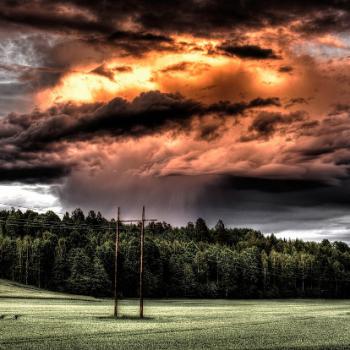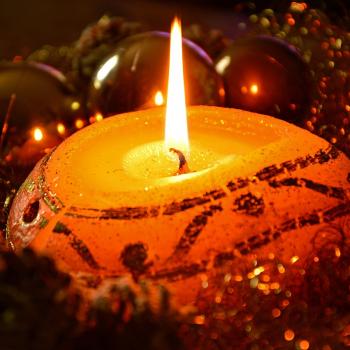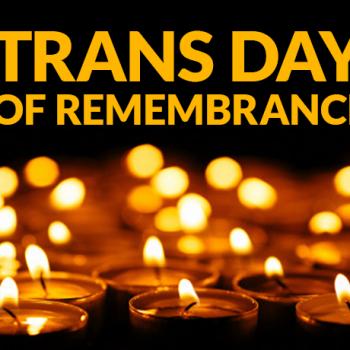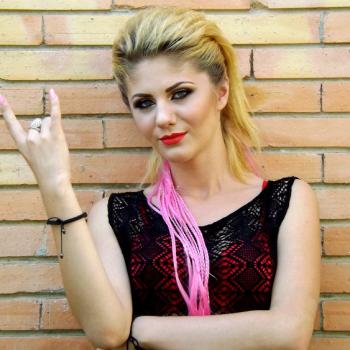
“But why don’t people in the LGBTQIA+ community start their own mysteries?”
“Just do your own thing and stop trying to change traditions.”
“But when Alex Sanders initiated a guy, the guy went crazy afterward.”
“But women aren’t really all that into ceremonial magic anyway.”
There are a variety of reasons why the answer to Why Cis-Centric Heteronormativity Must Die and the issues surrounding sexism, homophobia, and transphobia is not “go off and create a separate but equal tradition”. Let’s dig into some of those reasons now, shall we?
First of all, times evolve. Cultures have evolved. There’s absolutely no reason to stubbornly cling to 1950s homophobia and sexism. To those of you who are afraid of “changing tradition” within initiatory Wicca, tell me: does your coven or line dismiss your High Priestess when she gets old in order to be replaced by someone younger and (presumably) prettier? If you’re not paying attention to that particular law, then why are you arguing for picking and choosing what ones evolve with the times versus the ones which do not? If you can evolve on that issue without concerns over “preserving tradition”, then why aren’t you choosing to evolve on other ones as well? Why are homophobia and transphobia more acceptable to you than misogyny and ageism? And why are some people trying to gaslight others who received same sex initiations by Alex Sanders by describing them as “having gone crazy afterwards”? There’s an awful lot to unpack here, but I suggest we just light the entire match luggage set on fire instead.
And speaking of misogyny, I continue to find it deeply ironic that the Hermetic Order of the Golden Dawn, which was started in order to give women an equal chance at the mysteries versus Freemasonry, is being referenced as an example of a tradition that women should just leave and start their own deal away from in order to escape the old boy’s club mentality. Are people not aware of the history of their own organizations? Don’t you find it odd that an esoteric order that was started with the idea of gender equality is now a “boy’s club” that women should be encouraged to leave and just do something else instead? A tradition which began in 1887 has gone backward, and I continue to marvel at how behind the curve ceremonial magical traditions in regards to social progress are versus how traditional witchcraft ones are currently doing. What exactly is happening here?
I have so many questions. Why aren’t people thinking about this hard enough, and why are the ones who aren’t typically almost always are white, cisgendered men–in addition to white, cisgendered women? Who decided that they and they alone are the sole keepers and preservers of entire traditions as well as who belongs in it? Isn’t that up to individual groups for themselves within said tradition to decide, not some self-appointed “popes”? And why should it be everyone else who packs up and leaves? Why should the answer be a “separate but equal” tradition versus intelligently and thoughtfully challenging and reexamining ideas which no longer serve us? Why are some people content to essentially segregate a large portion of the population, and why does this not strike them as being the equivalent of regulated bigotry? Why is challenging the status quo and allowing things to evolve threatening to them?
Once again, people are using “tradition” as a shield for their own ignorance, bigotry, and often enough, a genuine hatred towards others.
What we should be striving for is equity, not some false equality that resolves nothing, answers no questions, and allows bigotry to thrive unchecked. When people are more insulted about the idea of letting traditions evolve organically versus outright prejudice and ideas on acceptability that are decades out of date, something is incredibly, fantastically out of whack. People are getting offended over all of the wrong things, and it’s time to think a bit harder about why that’s happening–and in addition, call people out who are doing it.
Thankfully those who are in opposition to change are in the minority, and their numbers will continue to decrease. If they want their tradition to be about them and only them and have everyone else who disagrees with them leave, then they will be a very, very small and lonely tradition. And those who shout in response to that “Then the tradition should die!” have clearly chosen what they care about supporting more, bigotry or the tradition–and it certainly isn’t the tradition. Such people should not be left to decide what happens to it in that instance, and we should move forward in our respective traditions without them.
















